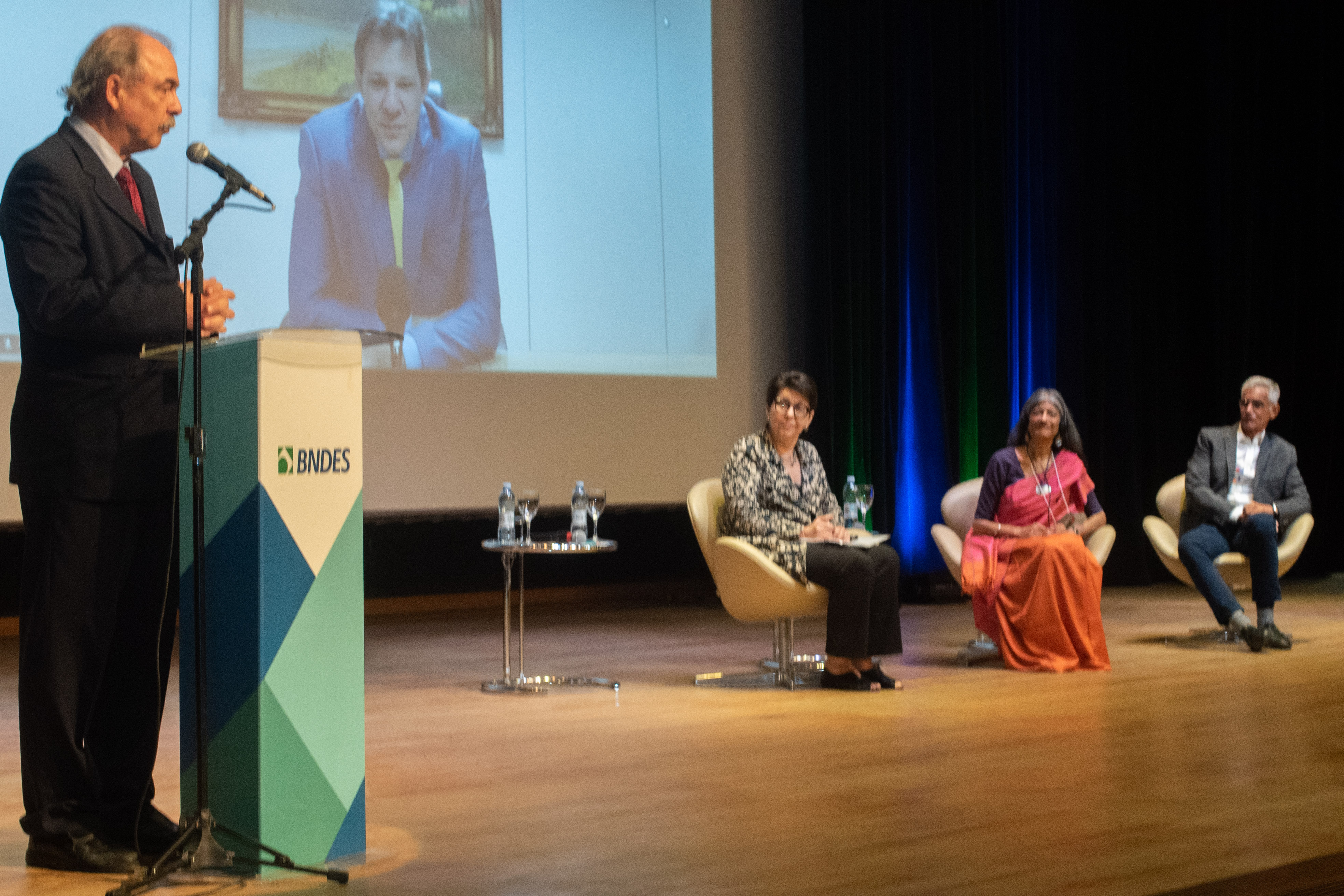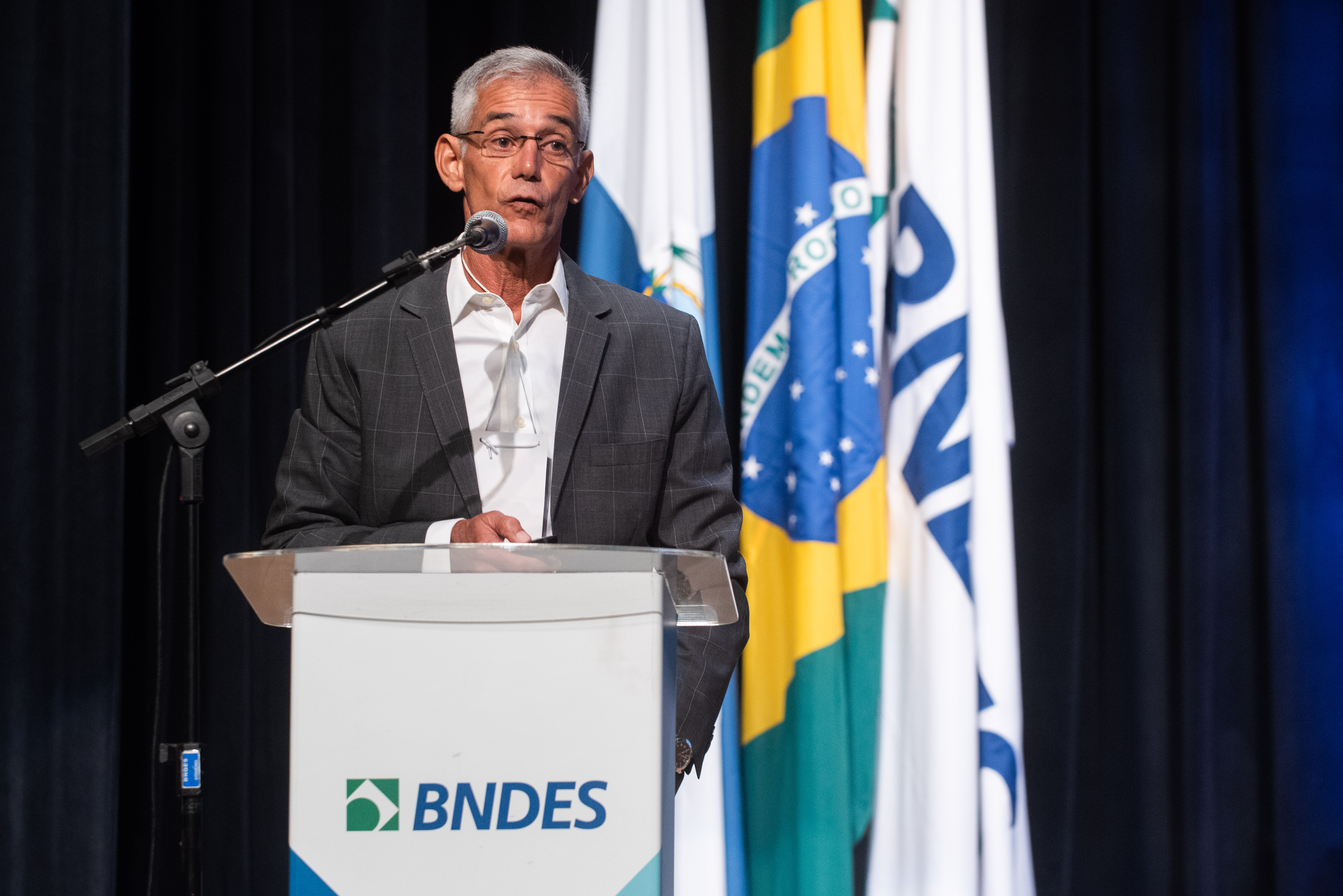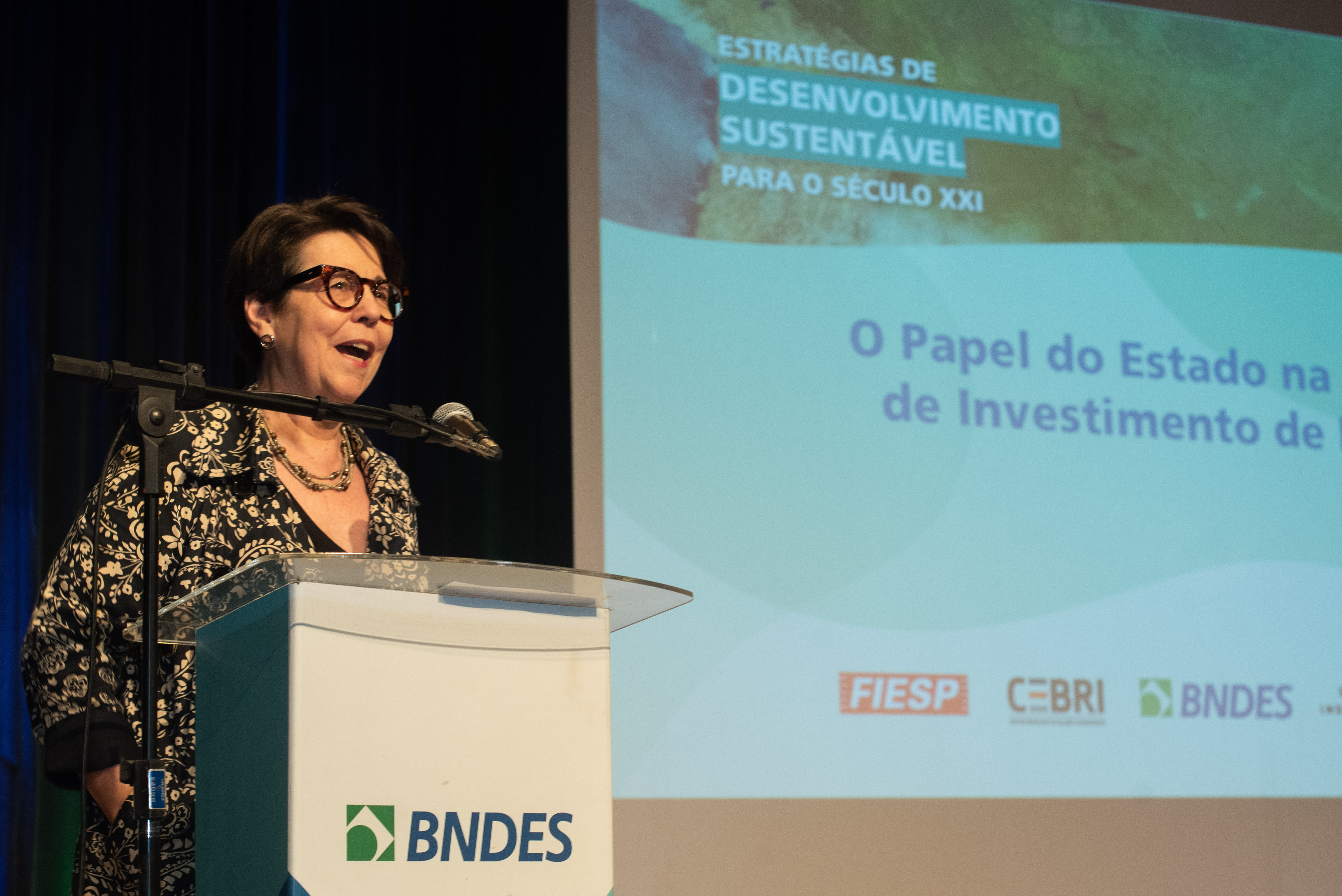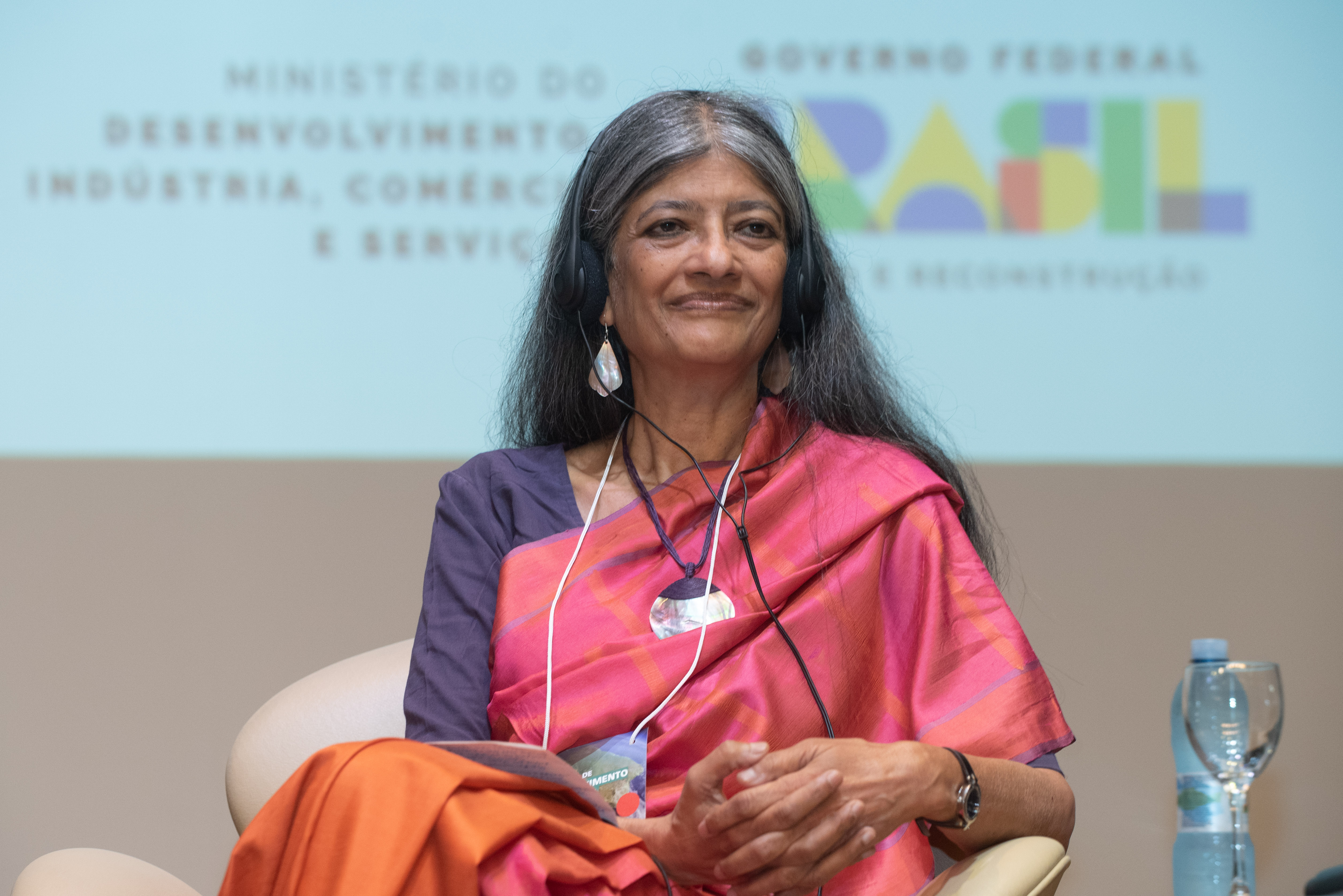CEBRI, BNDES, and FIESP debate sustainable development
- 23 march 2023
On the second day of the international seminar "Strategies for Sustainable Development in the 21st Century" (3/21), promoted by the Brazilian National Development Bank (BNDES), in partnership with CEBRI and the Federation of Industries of the State of São Paulo (FIESP), at the BNDES Theater in Rio de Janeiro, the participants highlighted the importance of Brazil leveraging its international financing flows to accelerate development.
The panel "The Role of the State in Coordinating Long-Term Investments", included the participation of Leonardo Burlamaqui, Senior Fellow at CEBRI and Professor at UERJ, Tereza Campello, Director of BNDES, Mariana Mazzucato, Professor at University College London (UCL), Jayati Ghosh, Professor at the University of Massachusetts Amherst, and Jeffrey Sachs, Director of the Center for Sustainable Development, Professor at Columbia University, and President of the United Nations Sustainable Development Solutions Network.
The following are the statements that most resonated in the national and international press:
- Jayati Ghosh, from the University of Massachusetts Amherst, warned that "we need to put into practice the economy we want, one capable of generating prosperity and satisfying social and sustainable objectives with the planet. She analyzed that Brazil is a "self-flagellating country", given that it imposes on itself the mission of generating primary surpluses, even though it does not have a high net debt and even in the face of so many social problems to be solved.
- Jeffrey Sachs, Professor at Columbia University and director of the Center for Sustainable Development, defended that Brazil is punished by very high interest rates, the result of central bank policies that he classifies as "very difficult to explain", and that the time is not for fiscal austerity, but rather for increasing public investments.
- Fernando Haddad, Minister of Finance, pointed out that Brazil has been a prisoner of short-term investments for a long time, which has resulted in low growth and a lack of planning capacity. For him, there are three agendas that need to be prioritized today: social, environment, and fiscal sustainability. The minister pointed out that the approval of a more efficient and flexible fiscal framework means, in his understanding, a new horizon towards the ecological transition and a better use of Brazil's competitive advantages.
- Leonardo Burlamaqui, Senior Fellow at CEBRI, compared the economic growth trajectories of Brazil, the United States, and China and noted the absence of a discussion of the role of the State in current economic theories.
- Tereza Campello, Director of the BNDES, stressed that it is fundamental to discuss the role of the State in the improvement of food systems for sustainable development, considering its urgency for historical problems of poverty and hunger in the Brazilian social agenda. Mariana Mazzucato highlighted the importance of making public bureaucracy more efficient.
Check out the second day of the seminar in its entirety HERE.




